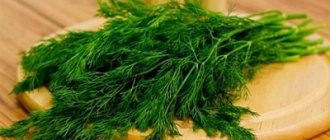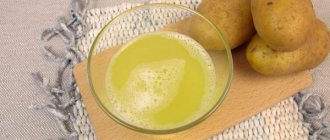Dill seeds for constipation: how to brew and take | ethnoscience
Dill is a plant that is commonly used in cooking; the aromatic spice adds a piquant touch to dishes. In addition to culinary delights, plant materials are often used in traditional medicine, because almost all parts of green bushes have a number of medicinal properties.
The most common component of home remedies is seeds, which are rich in beneficial elements. Even experts recommend using herbal remedies for constipation - dill seed contains substances that will quickly and gently cope with the problem.
Benefits of dill seed for constipation
The peculiarity of dill seeds is their high content of essential oils. It is these elements that actively influence feces - they soften them and promote excretion. In addition, products based on dill seed have a number of equally useful qualities:
- improve peristalsis;
- relieve spasms;
- improve intestinal function, reduce the activity of pathogenic microflora;
- prevent the development of putrefactive processes in the digestive organs;
- remove toxins.
Alternative medicine warns that the greatest benefit can only be obtained from dill seeds collected 3-4 years ago. Fresh plant materials are significantly inferior in terms of medicinal qualities - the concentration of essential oils is insufficient to effectively influence the problem.
Decoction for infants
Low-saturated decoctions prepared at home are recommended to be given even to infants - dill seeds do not contain elements harmful to the small organism. The only warning is that you first need to consult a doctor, and begin traditional treatment only after agreement with a specialist. Step by step recipe:
- Grind the seed using a coffee grinder (to prepare the decoction you will need 15 grams of plant mass).
- Mix the prepared powder and boiling water (220 ml).
- Place the container on low heat and simmer, stirring occasionally, for a quarter of an hour.
- Strain after complete cooling.
Give the baby the prepared decoction three times a day, the dosage is only a teaspoon. It is advisable to use a home remedy before feeding the baby - the active elements contained in the decoction promote digestion.
Adults are also allowed to use the decoction, but they will have to increase the dosage - take 40-60 ml of the product. The number of doses does not change - use the composition three times.
Infusion for children, pregnant women
Women expecting the birth of a child and children are recommended to prepare a rich infusion to treat constipation. The product will quickly cope with constipation, has a positive effect on the digestive processes, and normalizes the functioning of the stomach and intestines.
It should be remembered that during pregnancy the body is able to react unpredictably even to the most gentle folk remedies, so it is better to take the first doses of the infusion carefully. Careful monitoring of your general well-being will help prevent complications and adverse reactions - at the first signs of irritation, you should immediately stop using the home remedy.
Step-by-step folk recipe:
- To turn the dill seeds into flour (it is recommended to use a coffee grinder), you will need a full teaspoon of vegetable powder.
- Steam the plant mass with boiled water (250 ml), mix well.
- Wrap the container in a warm scarf and leave to steep for an hour.
- Strain using a strainer (it is better to use a gauze cloth that allows you to squeeze out the cake thoroughly).
Use the infusion three times, dosage – 25-30 ml. If the herbal medicine is used by adults, it is allowed to slightly increase the dosage - take 40-50 ml of liquid.
Taking dill seed in its pure form
According to alternative medicine, the most effective remedy against constipation is pure dill seed, which should be consumed without prior heat treatment.
The main condition is that treatment is recommended only for adults; the concentration of some elements is too high, which can lead to allergic reactions in children or people with hypersensitivity.
Before chopping, dry the dill seeds a little at room temperature; use an oven; a special dryer is not recommended - under the influence of high temperature, essential oils will begin to deteriorate. Using a coffee grinder, grind the seed into a fine powder and store in a glass, tightly sealed container.
Use a small pinch (5-7 grams) of herbal powder three times a day. Drink plenty of liquid (it is advisable to use only plain water, sweet drinks, even regular tea will reduce the effectiveness of the active elements). Take it before a meal - at the same time, the home remedy activates the digestive processes.
Drink for constipation and increased gas formation
If, along with constipation, you are worried about increased gas formation and discomfort in the abdominal area, it is recommended to supplement dill seed with other components that are no less effective in addressing the problem.
Apple peel (pre-dried), currant leaves, young raspberries, dill seeds - a combination that will quickly eliminate unpleasant symptoms. Preparation:
- Grind currant and raspberry leaves (it is advisable to use young leaves), add grated dry apple peel, take the components equally - about 10-15 grams each.
- Add dill seed (15 g) to the vegetable mixture and mix.
- Boil water (250-270 ml), steam the plant mass.
- Place the container on the stove and boil for 5 minutes.
- Wrap the container in a warm scarf and leave to steep until completely cooled.
The prepared product must be taken in small portions throughout the day. The home remedy works most effectively on an empty stomach, so it should be taken half an hour before eating.
Concentrated infusion of dill seed
If there are problems with intestinal permeability, constipation is accompanied by unpleasant colitis, gas formation, it is recommended to undergo treatment at home with a rich infusion prepared from dill seeds.
The product is concentrated, so it can only be taken by adults. Step by step recipe:
- Armed with a mortar, thoroughly grind the seeds of the plant (40 g), making sure that the essential oil begins to release.
- Boil 400 ml of water and steam the plant mass.
- Close the container with a lid, wrap it in a towel, and leave to steep for two hours.
- Perform straining; it is recommended to use gauze cloth, which will allow you to thoroughly squeeze out the cake.
Use the product twice - before breakfast and dinner. Dosage – 100 ml. The duration of treatment should not exceed a week - if there are no results, immediately contact a specialist.
Contraindications to the use of dill seeds, possible side effects
Before you begin the traditional treatment of constipation using dill seed, it is recommended that you familiarize yourself with the main prohibitions on use. The plant is considered one of the harmless ones, because the raw material does not contain elements dangerous to human health, but there are several contraindications, they must be taken into account.
It is strictly forbidden to carry out treatment if you are individually intolerant to the plant - herbal remedies can cause serious harm and cause side effects. An allergy to citrus fruits should also be a reason to avoid using home remedies.
How to Treat Hair Loss with Bay Leaf
The presence of formations in the kidneys, bladder, serious diseases of the genitourinary system are a number of other prohibitions on the use of dill seeds in treatment. Plant materials contain substances that can move stones and sand, causing blockage of the ureter. Surgery will be required to eliminate it.
You should not use herbal remedies for serious stomach diseases (gastritis, ulcers characterized by high acidity), intestinal diseases. Low blood pressure is another reason to refuse to take home medications; a careless attitude to the ban will result in loss of coordination, prolonged fainting, visual impairment, and general weakness.
During pregnancy, dill products should be used carefully, giving preference to slightly saturated formulations. It is better to consult your doctor first to find out possible complications.
Even if there are no prohibitions on treatment, if there is hypersensitivity, treatment can cause a number of side effects. Among the body's alarm signals to dill remedies are vision problems, general deterioration of health, drowsiness, and a profuse rash on the dermis. You need to stop taking the compounds immediately, without waiting for the problem to worsen.
Dill is a plant that never ceases to amaze with its beneficial characteristics, because the aromatic herb can affect various problems of the body. Despite the invaluable help of plant materials, using seeds in the treatment of constipation should not be abused - too frequent use of laxative decoctions will negatively affect the natural process of bowel movements.
Having coped with constipation, it is recommended to review your diet, introduce stool thinning dishes into the menu, consult with a specialist - proper nutrition will allow you to forget about constipation for a long time and use herbal remedies only in extreme cases.
Source: https://happiness-and-beauty.ru/semena-ukropa-ot-zapora.html
Botanical characteristics
The annual dill belongs to the Umbelliferae family. It is grown as a garden crop, but is sometimes found growing wild. It is believed that this greenery was brought from the Mediterranean countries.
Dill is an undemanding plant. It grows well in any soil and can grow even at a temperature of 5°C. That is why dill, like parsley, is the first spring green.
The plant has the following features:
- stem - an erect, rounded stem capable of reaching a height of 50-120 cm;
- shoot - single, distinguished by branching;
- leaves - divided into thread-like particles;
- flowers are small yellow, collected in umbrella inflorescences;
- the fruit is an elliptical two-seeded seed.
The benefits of fragrant dill fruits have been assessed by pharmacologists. This component, which has antispasmodic, diuretic and carminative properties, is included in such medications as “Fitogastrol”, “Fitonephrol”.
Dill seeds for constipation, dill water: as a laxative
Dill for constipation is one of the ways to use a herbal remedy. It has long been used in cooking, cosmetology, and to treat the nervous system and eyes.
Useful components are contained in greens, stems and roots; the highest dosage is in the seeds of the umbrella crop. In order to influence the digestive organs, dill is taken orally.
It is impossible to eat a lot of fresh herbs, but it is easy to prepare a healthy decoction or infusion from it at home.
How does dill act on the intestines: beneficial properties
Fragrant dill is a favorite and common food seasoning. In folk medicine, in addition to its laxative effect, it is known to relieve headaches, fatigue, and bloating. Recommended for the fight against helminths as a choleretic and diuretic, for healing and rejuvenating the skin.
Dill contains a huge amount of various vitamins; the plant has an excellent effect on the digestive tract, relieving such unpleasant symptoms as flatulence and constipation.
However, its ability to lower blood pressure makes it inaccessible to hypotensive patients.
Different indications depend on the content of healing components.
More than a hundred bioactive substances, vitamins, macro- and microelements were found in the plant.
Essential oil - gives smell and determines taste, the largest amount is in the seeds (up to 20%). For the therapeutic effect, the strong antispasmodic apiol and terpene compounds (carvone, limonene hydrocarbon, phellandrene, myristicin, isomyristin) are important. The component helps disinfect and block toxins, removing toxins.
Important! Apiol was also classified by Hippocrates as a drug that can cause abortion during pregnancy. Terpenes have carcinogenic properties.
Dill greens are rich in vitamins. In terms of ascorbic acid content, the plant is ahead of black currant. He has:
- vitamin E - antioxidant;
- β-carotene (provitamin A);
- PP (in the form of nicotinamide and nicotinic acid);
- from group B thiamine, B2, folic acid, rutin.
For intestinal diseases caused by metabolic or circulatory disorders in the pelvic area, the plant actively helps restore vascular permeability, liver, kidney, pancreas function, and establish bile secretion.
Among the minerals, the composition contains potassium, manganese, zinc, copper, calcium, iron, phosphorus, and sodium. The leaves contain lutein, chlorophyll, violexanthin. The stem and flowers contain flavonoids that speed up metabolism.
Nitrogen compounds are considered useful stimulants of the digestive process. The mass of dietary fiber per 100 g of raw material is about 3 g. They help increase the volume of the contents, absorb water and cause the excretion of feces.
The effect on the intestines produces:
- relieving spasms and colic;
- getting rid of flatulence;
- anti-inflammatory effect;
- improvement of nutrition and blood circulation through the vessels of the mesentery;
- active bile secretion;
- increased peristalsis and relaxation;
- support of local immunity.
Dill is a low-calorie product, but this does not make it any less useful. The composition of micro- and macroelements is quite rich.
The plant is used to relieve constipation in infants, and is suitable for older people during their working years. In old age, the first place among the causes is atony caused by circulatory disorders.
For newborns, imperfect adaptive mechanisms to milk and formula, lack of physical activity, and disruption of the diet by the nursing mother are important.
Whether a child’s stool after a year is weakened or strengthened by dill depends on the correctness of the diet and the regularity of feedings.
Recipes with dill for constipation for adults and children
To combat constipation, it is necessary to extract the necessary substances from dill. Methods of brewing seeds or dry leaves, infusing a decoction, and oil pressure are used. Dill goes well with other laxative herbs and is part of herbal teas.
Making dill oil at home is a long and tedious task. Why do this if you can buy a ready-made drug at the pharmacy? For an adult, traditional medicine recommends adding 10 drops of oil and half a teaspoon of honey to half a glass of water. You need to drink the mixture three times a day before meals. Normalization of stool is expected in 2-3 days.
A herbal collection can be compiled independently from equal volumes of dry crushed raw materials (mint, chamomile flowers, hawthorn fruits, immortelle, dill seed). It is better to brew in a thermos overnight.
For adults, using the powder is suitable: using a coffee grinder or mortar, crush a teaspoon of seeds into small particles. Mix with a small amount of sugar or honey. It is recommended to take half a spoon 3 times before meals, wash down with warm water.
Important! The results of collecting with dill will not appear immediately. To fully develop the effect, you will need to take it for 2-3 days.
Decoction and infusion of dill
For decoction and infusion, raw materials prepared independently in the summer (drying in the shade) or a pharmaceutical product are suitable.
Recipe No. 1. Be sure to boil the broth over low heat for 5–10 minutes. Prepared at the rate of: a tablespoon of crushed seeds per 250 ml of boiling water. After cooling, it is filtered. Adults need to drink ½ glass 3 times a day (accordingly, for brewing you need to take 1.5 tablespoons of seeds and 1.5 glasses of water). The dose for a child is ¼ cup three times a day before feeding or an hour after.
Recipe No. 2. Instead of water, take a glass of milk. Stirring, simmer over low heat for 5 minutes or 10 minutes in a water bath. Drink only warm.
The infusion is not boiled; a single pouring of boiling water is allowed. A 0.5 liter thermos is better suited for this purpose. Some people prefer wrapping the can. The holding time is at least an hour.
It's best to prepare it overnight so you can drink it the next day. Proportions: a tablespoon of crushed seeds per 250 ml of water (2 spoons per 0.5 l).
Dosage for adults: 1/3 cup before meals, infants up to one year: a teaspoon, older: 2 tablespoons three times a day.
I take dill decoction not only to improve the functioning of the digestive tract. The plant has many beneficial properties. For example, dill decoction helps increase breast milk.
Infusion and decoction are recommended for constipation caused by atony, spastic colitis, hemorrhoids.
Dill juice
You can get juice only from fresh dill and stems. After washing and drying, the leaves are crushed (finely chopped with a knife or passed through a meat grinder). The best way is a juicer.
Important! The juice is stored at room temperature for no longer than 40 minutes. Therefore, it must be taken immediately or refrigerated for a day.
The most popular recipe is a combination of equal parts dill juice and honey. Helps with constipation caused by gastritis with high acidity. Useful for men with prostatitis.
Dill water with laxative effect
Parents of infants should know the recipe for dill water for constipation. If the child becomes stronger and defecation is delayed, the baby becomes restless, screams, and refuses to eat.
You can prepare this useful product in an hour and can store it for 2-3 days. Essentially, it's an infusion. Pediatricians recommend adding it to drinks for prevention.
It is necessary to grind a teaspoon of seeds, pour a glass of boiling water and leave for 1 hour.
Source: https://MojGemorroj.ru/ukrop-ot-zapora.html
Beneficial features
It is from dill that a number of medicines are created that are taken for the maintenance treatment and prevention of heart disease. This is due to the fact that the anetine it contains promotes the natural dilation of blood vessels, which prevents the formation of blood clots and improves blood flow to all organs, including the brain. Dill is even used for stomach or intestinal ulcers - it can have an analgesic effect and relieve spasms.
Everyone takes it as a seasoning, but few people know about the wide range of beneficial and medicinal properties of dill. Usually, parents who have a small child learn about its beneficial properties, since dill seeds help fight colic in babies. It is completely safe for babies due to its natural nature and acts as a spasm reliever and reduces the unpleasant colic that babies suffer from.
Few people know, but dill seeds also have a very rich composition. It is these small grains that contain a wide range of elements, including zinc, essential oil for the body, and various vitamins. The plant has a fairly rich chemical composition, and it contains a lot of calories - about three times more than tomatoes.
Chemical composition of dill (per 100 g)
| Vitamins | |
| Tocopherol (E) | 1.4 mg |
| Vitamin C | 1.7 mg |
| Vitamin B9 (folic acid) | 100 mg |
| Vitamin B6 (pyridoxine) | 27 mcg |
| Vitamin B3 (pantothenic acid) | 0.2 mg |
| Vitamin B2 (riboflavin) | 0.3 mg |
| Beta carotene | 750 mcg |
| Vitamin B1 (thiamine) | 0.1 mg |
| Vitamin PP | 4.5 mg |
| Vitamin A | 0.03 mg |
| Macronutrients | |
| Phosphorus | 0.6 mg |
| Potassium | 93 mg |
| Sodium | 335 mg |
| Calcium | 70 mg |
| Magnesium | 43 mg |
| Microelements | |
| Iron | 0.91 mg |
| Manganese | 223 mg |
| Copper | 1.264 mg |
| Zinc | 146 mcg |
How dill seeds can help:
- cope with insomnia;
- improve heart function;
- support the body in eliminating harmful substances and toxins;
- reduce blood pressure;
- stimulate the production of gastric juice;
- normalizes intestinal function;
- help fight lack of appetite.
The seeds normalize heart contraction, thereby supporting the fight against arrhythmia or atherosclerosis. This helps to stabilize blood vessels and improve heart function.
For problems in the genitourinary system, decoctions and infusions from seeds are used as a natural mild diuretic, which, among other things, helps remove toxins and waste. Here, the properties of dill seeds to cope with harmful bacteria also come to the aid of our health, as they help in the treatment of inflammation. In addition, they act as a weak choleretic agent and support the body in diseases when the flow of bile is impaired. Thanks to their ability to fight harmful bacteria, they help stop rotting processes in the digestive tract.
Few people know, but dill seeds help in the maintenance treatment of problems such as severe cough or bronchitis. The fact is that they are able to stimulate the cleansing of the bronchi, helping to thin out mucus.
Dill seeds for constipation
12.05.2019
Dill seeds for constipation help normalize the activity of the gastrointestinal tract without causing any side effects on the body. Dill and its seeds are considered an effective folk remedy for constipation; the plant has a laxative effect. Dill for constipation is used internally; first you need to prepare a solution or tincture on the plant.
Dill seeds to treat constipation
Help of dill seeds for constipation
Dill helps with constipation, since the seeds contain a large amount of essential oils and beneficial microelements.
Dill seeds in dill water produce the following effects on the gastrointestinal tract, such as:
- improvement of intestinal motility;
- softening of stool with water and essential oils;
- liberation of the intestines from toxins and waste;
- normalization of the synthesis of beneficial microorganisms in the intestines.
Constipation is characterized by a delay in bowel movements for three days. In this case, the body begins its own poisoning with metabolic products. It is important to clear the intestines of feces in time and do this in a gentle way using dill.
In addition, after cleansing the intestines, it is necessary to restore the microflora, as well as the mucous membrane, to stop the proliferation of bacteria and prevent intestinal infections.
Dill copes with such problems for constipation; it has a weak antibacterial property.
Contraindications to the use of dill and its components for constipation
Dill seeds in folk medicine: medicinal properties and contraindications
Dill seeds or other parts of the plant are not a medical drug, but are used as a dietary supplement. The product cannot be called potent, but there are a number of contraindications in which the use of dill should be limited.
Among them:
- reduced blood pressure;
- gastritis and stomach ulcers with high acidity;
- days of menstruation in women;
- individual intolerance in the form of allergic manifestations;
- impaired hemostasis, tendency to bleeding.
How to prepare the medicine?
There are several ways to use dill seeds for constipation in adults. The most common remedy used in therapy and pediatrics is dill water. It is easy to prepare and can be used for long courses.
The water recipe is as follows:
- the seeds of the plant in the amount of one teaspoon need to be ground;
- pour the powder into a glass of boiling water;
- The infusion is stored under the lid for an hour.
How to prepare dill water
The water recipe is suitable for children, because very often doctors recommend using dill seeds for constipation in infants. If you prepare water for adults, the number of plant seeds should be doubled.
Dill water is prepared in one hour, and it is stored for two to three days. Only after two to three days of regular use will the effect of dill water be visible.
This remedy can be taken as a preventive measure for colic in children or constipation in adults, if there is a tendency to these processes.
How else can you take dill seeds?
Dill seeds for constipation can be used in different forms, crushed or whole, as well as in the form of decoctions and infusions. You can choose the right recipe depending on its effectiveness.
It is first recommended to try all dill-based remedies to treat constipation. The effect of dill is enhanced by atonic constipation with impaired motor skills.
You can mix infusions and water with other ingredients, for example, chamomile, honey.
Seed decoction
The decoction of the seeds is similar in preparation to dill water. Add a crushed tablespoon of dill seeds to a glass of boiling water. Then the solution must be placed on low heat and boiled for 15 minutes.
The finished broth is cooled and filtered. Dosage for adults – half a glass three times a day before meals. Children's dosage – a quarter glass three times a day before meals. It is recommended to give newborns two tablespoons per day before meals.
Laxative infusion
Dill seed decoction for constipation
The infusion is used for complex treatment of chronic constipation.
To prepare the drink, you need to take 2 tablespoons per half liter of boiling water, and then leave in a thermos for half an hour.
After straining, you need to use the product 3 times a day before meals: 80 ml for adults, half as much for children over 1 year old, and 20 ml for children under one year old.
Adult dosages
The dosage for dill water is calculated depending on age. For adult patients, the drug is prescribed in the amount of a quarter glass three times a day. Water is taken half an hour before meals. The remedy itself is not able to eliminate the cause of chronic pathology; it will only help in treating the symptoms. Newborn children and dill seeds for gastrointestinal disorders
If there is a problem of constipation or colic in children, then it is recommended to give water with dill seeds for constipation in infants. The dosage for newborns or small children is 6 teaspoons per day. You can give one teaspoon before each feeding.
This remedy, two to three tablespoons per day, is recommended for nursing mothers. It is allowed to give dill water from the age of introducing complementary foods or mixtures. Its taste is neutral, which contributes to good intake of water and its rapid absorption.
Use in cooking
Dill is widely used for pickling vegetables, and even umbrellas with not yet ripened seeds are used. It is often used to flavor dishes, even to add a pleasant aroma to cheese, but it is recommended not to combine dill with spices, because its aroma and taste are already strong enough.
If you want to prepare dill for use in winter, you can simply dry it in a cool, dark place, and rest assured that it will not lose either its aroma or its beneficial properties. Seeds can also be harvested and stored throughout the year, using as needed.
Due to the ability of dill to dilate blood vessels, it helps get rid of headaches and migraines, and also helps to relax the intestines. This same property helps lower blood pressure when used regularly, but before doing so, you should consult your doctor. The properties of dill can be considered universal, since it is used to combat excessive salt deposits in combination with therapeutic massage and sports activities. It helps fight obesity by acting as a supportive medication in combination with diets and exercise. It is even recommended for use by those who suffer from diabetes.
A weak decoction of dill is used to relieve inflammation of the eyes and fight certain diseases such as conjunctivitis. The seeds of this plant are able to relieve spasms, fight harmful bacteria and enhance the removal of bile from the body.
If you do not like the taste of dill seed infusion, you can use it in its pure form. To do this, you need to take them orally 3 times a day in dry form with water. A small pinch is enough for the effect to be noticeable with regular use. This remedy is good for intestinal problems, including gas or constipation. Dill brings no less benefit to those people who have skin diseases, including those associated with improper functioning of the stomach or intestines.
Another way to use dill is to use a special essential oil made from it. The oil is taken 10-15 drops 3 times a day, it is advisable to combine it with sugar to brighten up the not very pleasant taste.
Contraindications and harm to the plant
Dill can bring not only benefits, but also cause harm to a person. And most often, the negative side of the plant appears when greens are abused. This is exactly what Avicenna warned about. Perhaps the ancient healer pointed out the development of side effects caused by an overdose of dill:
- excessive decrease in pressure;
- lightheadedness or fainting;
- sudden loss of strength;
- blurred vision (temporary).
But if greens are not abused, then the symptoms of a hypotonic state do not occur. That is why during therapy it is necessary to strictly follow the recommendations for preparing dill preparations and adhere to the prescribed dosages.
In order not to provoke deterioration in health, it is necessary to take into account contraindications to the use of dill. You should refrain from herbal therapy in case of hypotension and in the last trimester of pregnancy.











